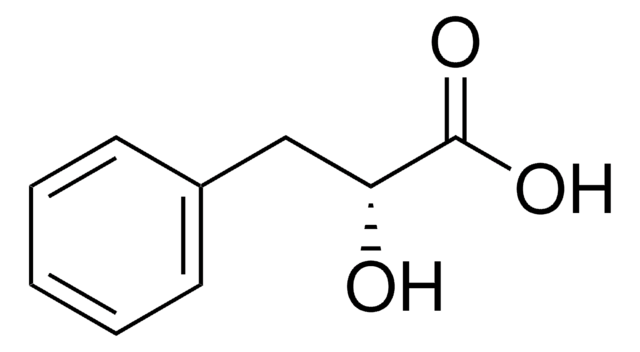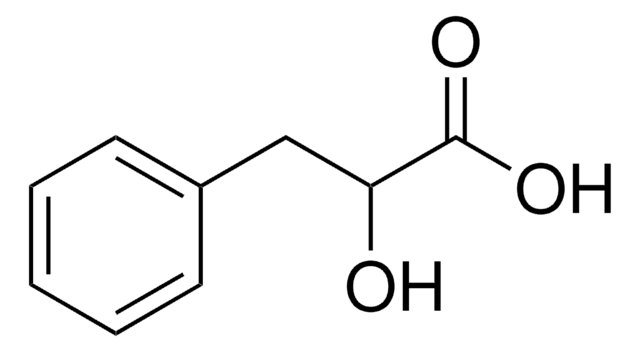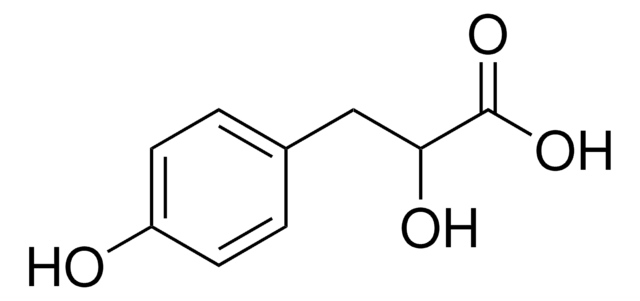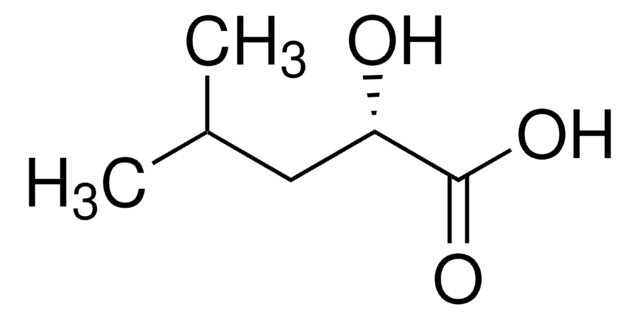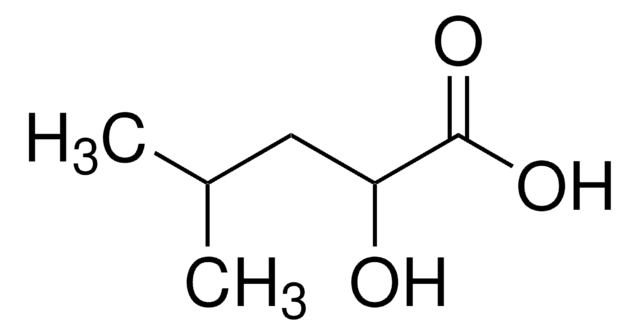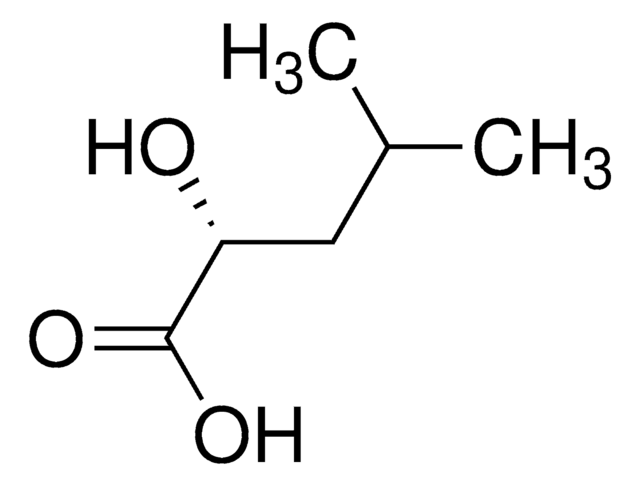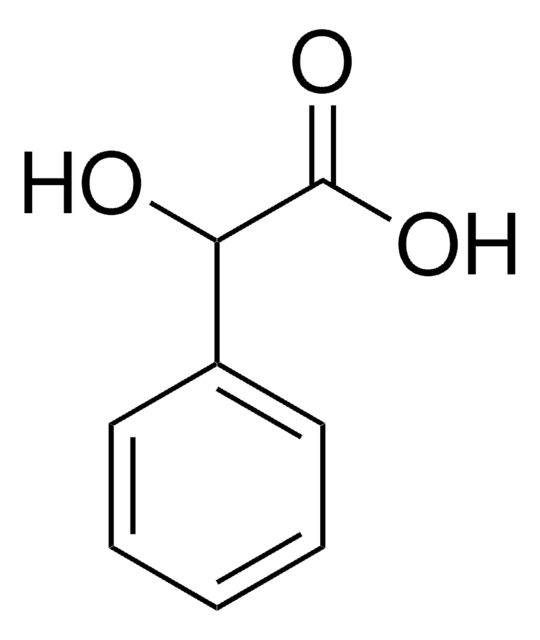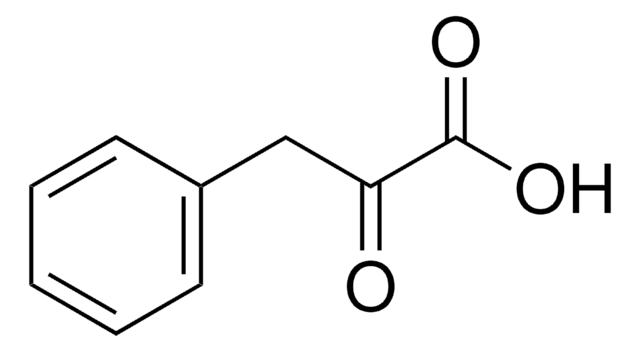113069
L-(−)-3-Phenyllactic acid
98%
Synonym(s):
(S)-(−)-3-Phenyllactic acid, (S)-2-Hydroxy-3-phenylpropionic acid, L-3-Phenyllactic acid
Sign Into View Organizational & Contract Pricing
All Photos(3)
About This Item
Linear Formula:
C6H5CH2CH(OH)CO2H
CAS Number:
Molecular Weight:
166.17
Beilstein:
2209792
EC Number:
MDL number:
UNSPSC Code:
12352002
PubChem Substance ID:
NACRES:
NA.22
Recommended Products
Quality Level
Assay
98%
form
solid
optical activity
[α]24/D −20.8°, c = 2 in H2O
mp
122-124 °C (lit.)
functional group
carboxylic acid
hydroxyl
phenyl
SMILES string
O[C@@H](Cc1ccccc1)C(O)=O
InChI
1S/C9H10O3/c10-8(9(11)12)6-7-4-2-1-3-5-7/h1-5,8,10H,6H2,(H,11,12)/t8-/m0/s1
InChI key
VOXXWSYKYCBWHO-QMMMGPOBSA-N
General description
L-(-)-3-Phenyllactic acid has been used in the development of degradable self-assembling depsipeptide nanofibers.
Storage Class Code
11 - Combustible Solids
WGK
WGK 3
Flash Point(F)
Not applicable
Flash Point(C)
Not applicable
Personal Protective Equipment
dust mask type N95 (US), Eyeshields, Gloves
Choose from one of the most recent versions:
Already Own This Product?
Find documentation for the products that you have recently purchased in the Document Library.
Controllably degradable ?-sheet nanofibers and gels from self-assembling depsipeptides.
Tian YF, et al
Biomaterials Science, 1(10), 1037-1045 (2013)
Ye F Tian et al.
Biomaterials science, 1(10) (2013-11-14)
Self-assembled peptide materials have received considerable interest for a range of applications, including 3D cell culture, tissue engineering, and the delivery of cells and drugs. One challenge in applying such materials within these areas has been the extreme stability of
Demao Li et al.
Se pu = Chinese journal of chromatography, 22(3), 281-283 (2005-02-17)
Various factors affecting the chiral resolution of 3-phenyllactic acid by capillary zone electrophoresis such as the type of cyclodextrin, concentration of the chiral selector, buffer pH, voltage, and temperature were studied and optimized. Using 30 mmol/L hydroxypropyl-beta-cyclodextrin as the chiral
M M Finney et al.
Journal of chromatography. A, 1066(1-2), 249-253 (2005-03-30)
Accurate and reproducible methods for the analysis of plant allelochemicals are a requirement for the study of chemical interactions between plants. This paper describes a method for sample preparation and quantitative analysis of the allelopathic chemical content of rye (Secale
Wanmeng Mu et al.
Applied microbiology and biotechnology, 95(5), 1155-1163 (2012-07-12)
3-Phenyllactic acid (PLA), which is an organic acid widely existing in honey and lactic acid bacteria fermented food, can be produced by many microorganisms, especially lactic acid bacteria. It was proved as an ideal antimicrobial compound with broad and effective
Chromatograms
application for HPLCOur team of scientists has experience in all areas of research including Life Science, Material Science, Chemical Synthesis, Chromatography, Analytical and many others.
Contact Technical Service